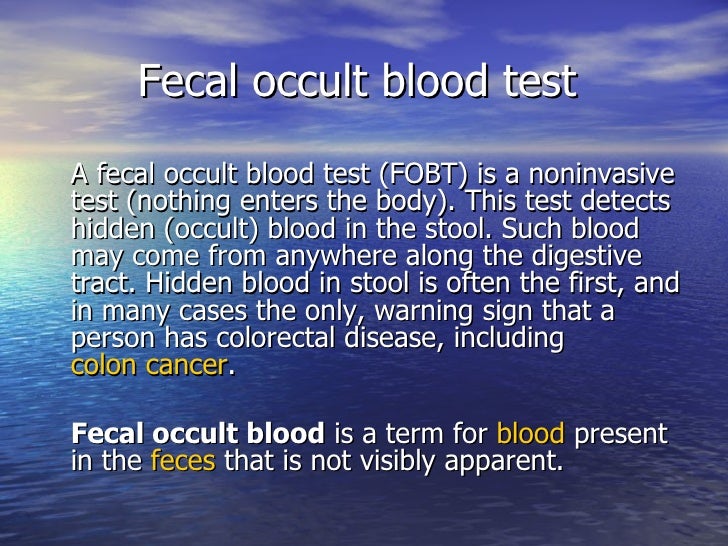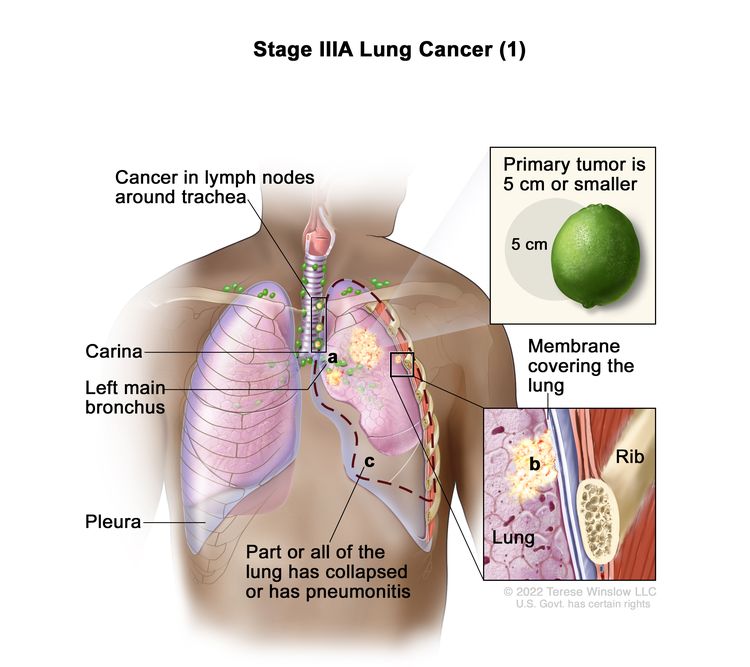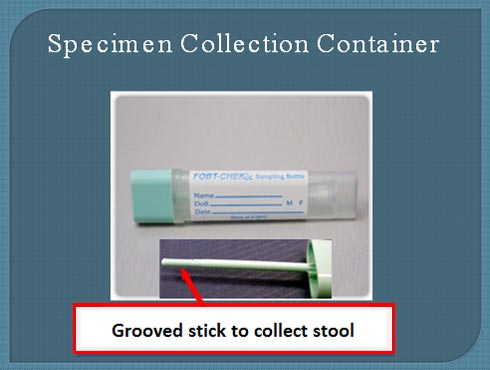There are lots of reasons you could have blood in your poo and most of these are not related to cancer. All You Need To Know 2021 Not so long ago the only reason youd get a stool test would be because your doctor wanted to rule out serious conditions like cancer or inflammatory bowel disease or youd just come back from Borneo with a case of parasite-induced diarrhoea.
But it may also mean that you have hemorrhoids inflammatory bowel disease or bleeding ulcers.

Does a positive stool test mean cancer. The amount of blood the color of the blood give indications of possible causes. Also Read - Scientists find a way to stop the spread of colorectal cancer tumours A stool test or stool analysis is the collection and laboratory. A positive result does not always mean you have bowel cancer.
The fecal immunochemical test known as FIT screens for colorectal cancer by detecting small amounts of blood in the stool. When blood is detected gastroenterologists perform a colonoscopy to. A positive test result means that blood was found in your sample.
This test spots cellular changes that could mean you have cancer or pre-cancerous polyps. It is positive when there is blood in the stool. FIT is recommended as a screening test every two years for those ages 50-74 who are of average risk.
That can be a sign of colon cancer. The stool sample is a good screening tool but on its own its insufficient to prove cancer. However many times the cause of a positive FIT test is a non-cancerous condition such as ulcers or hemorrhoids.
It also can detect. Your doctor may order further tests to rule out colon cancer and diagnose these other conditions. Bleeding may be caused by a number of conditions including polyps haemorrhoids or inflammation and may not necessarily be cancer.
Stool Testing On The NHS. Blood in the stool can occur for a variety of reasons the most concerning of which is cancerCertainly if there is blood in the stool it needs to be evaluated. The bowel cancer screening programme aims to find polyps and because some polyps bleed the detection is based on finding traces.
For example hemorhhoids may bleed from irritation but may lead to bright red blood in the stool. If your FOBT results are positive this means blood has been detected in your sample. There are several types of stool tests.
Stool test or stool analysis what is it. I should also add that at age 28 digestive tract cancer is highly unlikely. If there is no colon cancer the fecal occult blood test might be said to be a false positive for.
Screening for colorectal cancer uses stool tests to check for bleeding inside the GI tract. In fact most people with blood in their stool do turn out not to have cancer in the digestive tract. The study patients aged 50 to 89 all received a positive result on a fecal blood test between the start of 2011 and the end of 2012.
If you have a positive test result you. Blood in the stool suggests an individual is at higher risk for having colon cancer. About one in 14 people will have a positive FOBT result.
Stool tests like these need to be done every year. The type of stool test used depends on why the test is being done and what the doctor is looking for. As expected people whose tests came back positive were more than seven times as likely to eventually die of colon cancer than people who.
Typically patients whose test comes back positive -- indicating blood in the stool a potential sign of cancer -- are then referred to a follow-up colonoscopy. It measures the amount of blood in your stool sample. Types of stool tests.
Find out more about screening for colorectal cancer. A positive result will need to be followed up with a colonoscopy to see if polyps or cancer is present. Im not a doctor but at your age I was suffering from quite severe IBS symptoms.
A positive abnormal result means that blood was found in your stool. Until recently faecal occult blood tests FOBt were used to screen for bowel cancer across the UK. See an example positive result letter.
Today stool tests can do a lot more. A gFOBT guaiac-based fecal occult blood test uses a chemical reaction. Positive test result.
The stool DNA test or FIT-DNA test is another option for the early detection of CRC.






